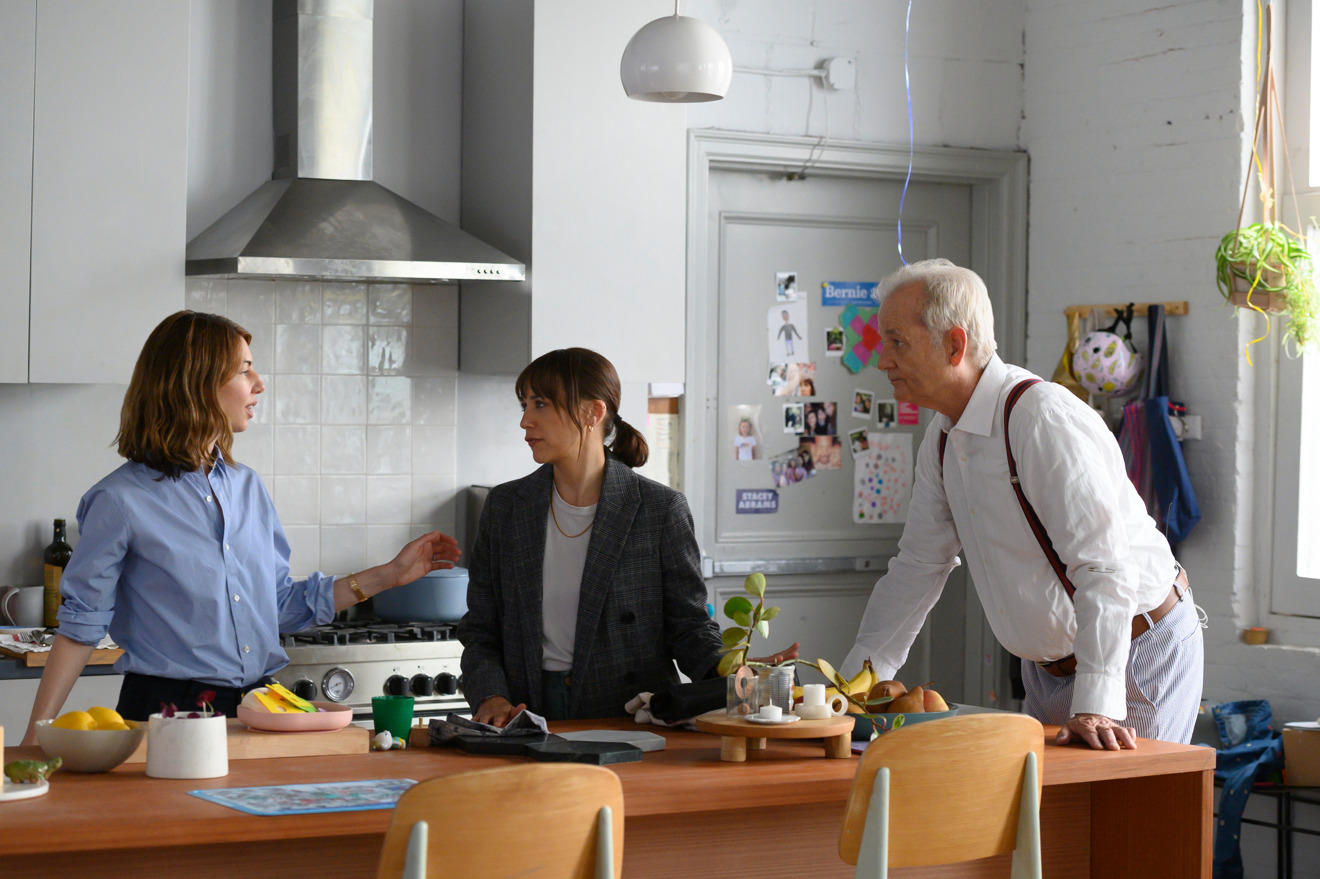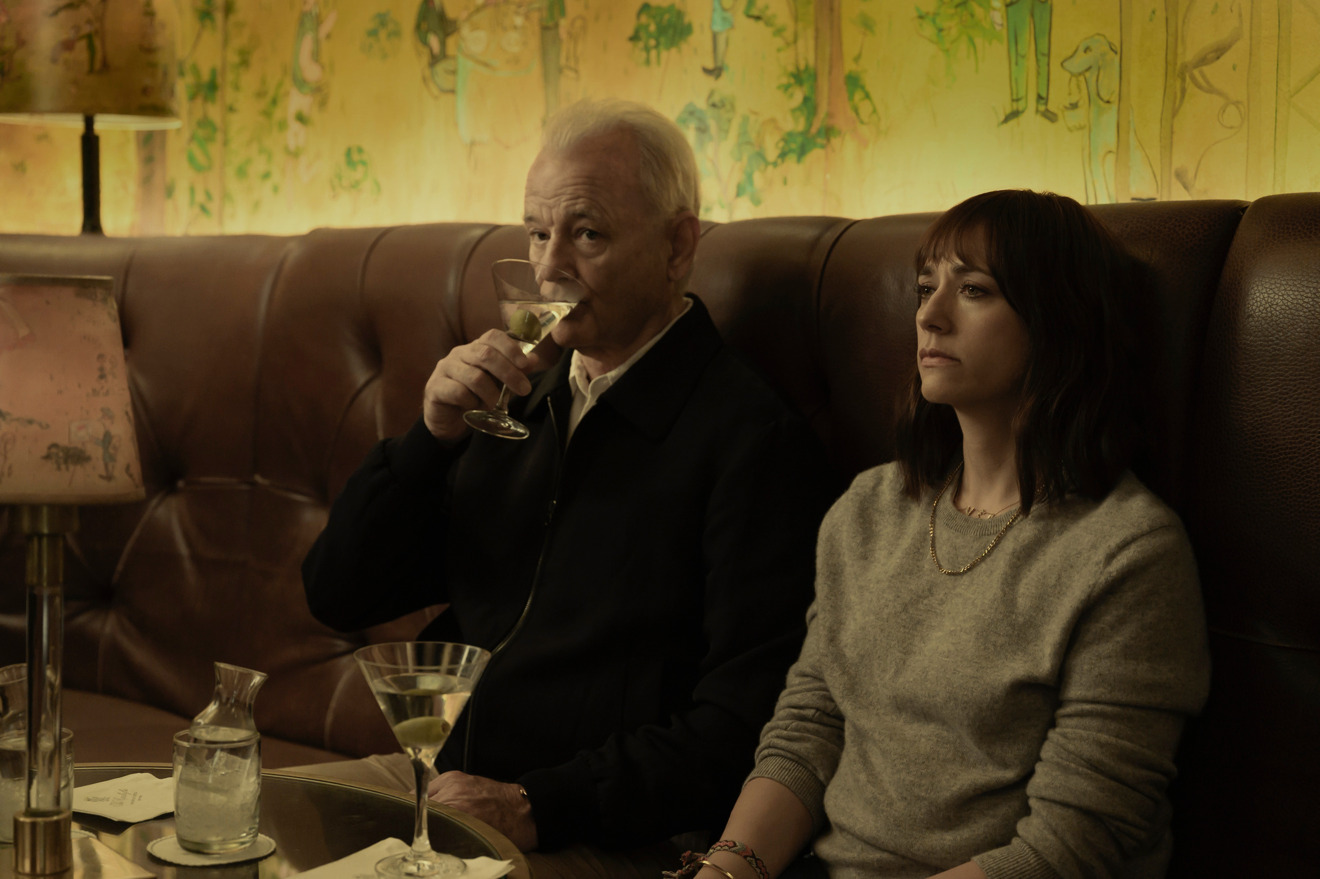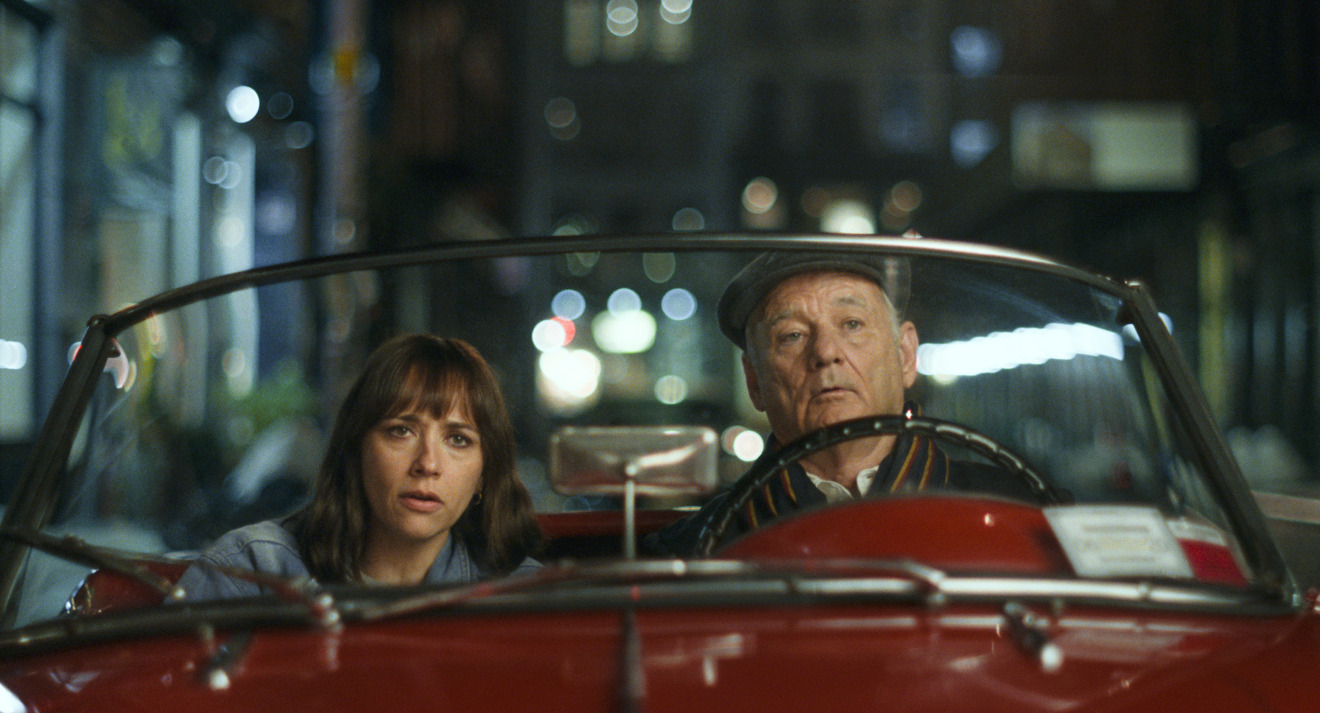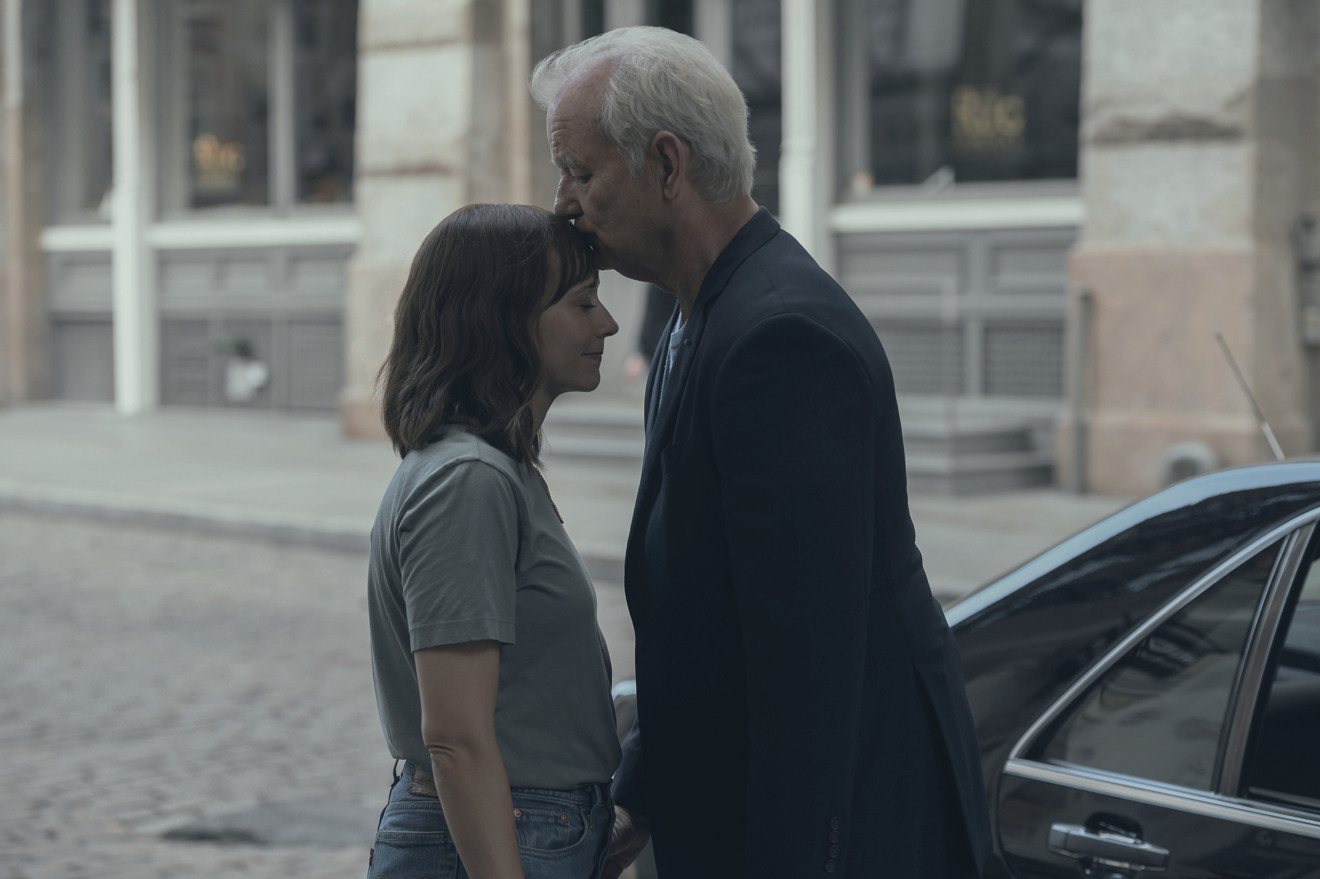In a 'Lost in Translation' reunion, Sofia Coppola directs Murray in a fine New York story.
With On the Rocks, the Apple TV+/A24 partnership has yielded its best feature film to date. It's a beautifully-mounted comedy drama, directed by Sofia Coppola, that boasts a great performance from Bill Murray and a serviceable turn from Rashida Jones.
Perhaps more than anything, it's going to make those watching it really miss pre-pandemic New York City, and especially the experience of having a night out there.
The film premiered at the New York Film Festival in September, and got a brief theatrical release in whatever movie theaters are open in early October, before landing on Apple TV+ October 23. On The Rocks represents a reunion between Coppola, the director, and Murray, her leading man in her most highly-regarded film, 2003's Lost in Translation.
It's the story of a wealthy but blocked author named Laura (Jones) who's a mom of two daughters, and lives in a massive apartment in a fashionable New York neighborhood. But as the film starts, she begins to suspect that her businessman husband Dean (Marlon Wayans) is having an affair. So her wealthy, womanizing father Felix (Murray) engages her in a series of adventures, in order to supposedly catch him in the act.
Found in translation
One thing that's notable about On the Rocks is that its plot is somewhat wispy and inconsequential. While watching it, I didn't care a great deal about whether or not the husband was actually cheating, or whether she would catch him.
What really stands out in the film are the performances, the character beats, and its cinematic depiction of downtown Manhattan.
Coppola shoots New York City, especially the Soho section, beautifully, especially in a great sequence in which Jones and Murray go for a night on the town in a classic car. We see basement bars, fancy restaurants and, more than anything else, city streets.
Take the film's best scene, in which Murray and Jones are driving around downtown in a classic convertible, and are pulled over by a police officer. At that point, Murray so successfully sweet talks the cop that he not only gets out of a ticket, but talks the officer into giving his car a jump.
Bill at his best
A lesson in white privilege? Perhaps. But it also gets across just how strong this performance is by Bill Murray.
He's playing a guy who, on the page, probably came across as a repugnant jerk. His character says terrible things about women that sound like they came straight from pick-up artist literature, and it's clear that his prolific cheating didn't make things easier in her younger years.
But the way Murray plays him, he's such a charming and charismatic rogue that we can see why he appeals to people. It's not exactly in line with Murray's established screen persona, but it's a subtly brilliant performance, his best in a movie since his heyday of great turns in the Rushmore/Lost in Translation/The Life Aquatic With Steve Zissou run, more than 15 years ago.
Sofia's story
For as long as Coppola has been directing, there's been a lot of speculation over just how autobiographical her films are. Clearly, there's a lot of her dad, Francis Ford Coppola, in Murray's character, himself a larger-than-life personality once known for his proclivities with the ladies. And of course, Rashida Jones has her own father, Quincy Jones, who's a famous icon.
Coppola has also been criticized for making movies mostly about the plight of rich ladies, who are either creative people or married to them. But I've always thought you're supposed to write what you know, and that's what she knows.
On the Rocks isn't her best film — I'd put it a tick below both The Virgin Suicides and Lost in Translation — but it's much better than her last few movies.
Onto the Oscars?
On the Rocks provides a glimpse of a very possible future in which Apple TV+, like Netflix, releases a slate of films each fall that compete for awards and also aim at capturing the cultural conversation. This year, it will have less competition than most years, with the lack of theatrical releases, but On The Rocks has a real chance to win the first-ever Oscar for both Bill Murray, and Apple.
Coppola's film has a chance to do that, with a story that reminds people of the good old days of being able to go out to hopping bars and restaurants in a big city.
 Stephen Silver
Stephen Silver










-m.jpg)






 Marko Zivkovic
Marko Zivkovic
 Mike Wuerthele
Mike Wuerthele
 Christine McKee
Christine McKee
 Amber Neely
Amber Neely
 Sponsored Content
Sponsored Content
 Wesley Hilliard
Wesley Hilliard

 William Gallagher
William Gallagher







4 Comments
Cool! Something to watch over the weekend.
I've seen criticism of directors making movies about "rich people problems" before and think that is a very silly criticism. Good stories can be found anywhere, as can entertaining stories.
I had to do some thorough research on the word "comedy" to figure out why this movie might be called a comedy when it did not result in any laughter. I discovered that there is a term called Tragicomedy which more aptly fits this movie. Here are the wikipedia definitions and my reasons for choosing the term "Tragicomedy" for this movie.
Category
Definition
On The Rocks
Comedy
In a modern sense, comedy (from the Greek: κωμῳδία, kōmōidía) is a genre of fiction that refers to any discourse or work generally intended to be humorous or amusing by inducing laughter
This term does not fit On The Rocks because there was no "laughter induced" at any point in the movie.
Romantic Comedy
Romantic comedy (also known as romcom or rom-com) is a subgenre of comedy and slice-of-life fiction, focusing on lighthearted, humorous plot lines centered on romantic ideas, such as how true love is able to surmount most obstacles.[1] One dictionary definition is "a funny movie, play, or television program about a love story that ends happily".[2]
Not an apt description of On The Rocks. It certainly wasn't lighthearted, nor was it humorous, nor was it centered on romantic ideas. It was more about suspicions and a tragic loss of love. Bill Murray's subplot contained most of the irony that could pass as humour.
Screwball Comedy
Screwball comedy is a subgenre of the romantic comedy genre that became popular during the Great Depression, originating in the early 1930s and thriving until the early 1940s. It satirized the traditional love story. Many secondary characteristics of this genre are similar to film noir, but it distinguishes itself for being characterized by a female that dominates the relationship with the male central character, whose masculinity is challenged.
Definitely not what On The Rocks was about, although I admit this is where my expectations lied. The title seems to be a pun which contributed to my false expectations.
Tragedy
Tragedy (from the Greek: τραγῳδία, tragōidia[a]) is a form of drama based on human suffering and, mainly, the terrible or sorrowful events of a main character.[2] Traditionally, the intention of tragedy is to invoke an accompanying catharsis, or a "pain [that] awakens pleasure", for the audience.
This is a fairly good description of On The Rocks, since it was mostly about suspicions and falling out of love. And yes there was a catharsis at the end.
Tragicomedy
Tragicomedy is a literary genre that blends aspects of both tragic and comicforms. Most often seen in dramatic literature, the term can describe either a tragic play which contains enough comic elements to lighten the overall mood or a serious play with a happy ending.[1] Tragicomedy, as its name implies, invokes the intended response of both the tragedy and the comedy in the audience, the former being a genre based on human suffering that invokes an accompanying catharsis and the latter being a genre intended to be humorous or amusing by inducing laughter.
This is a very apt term to describe On The Rocks.
Not a comedy really. I won’t spoil the ending. Good ending and not what I expected.